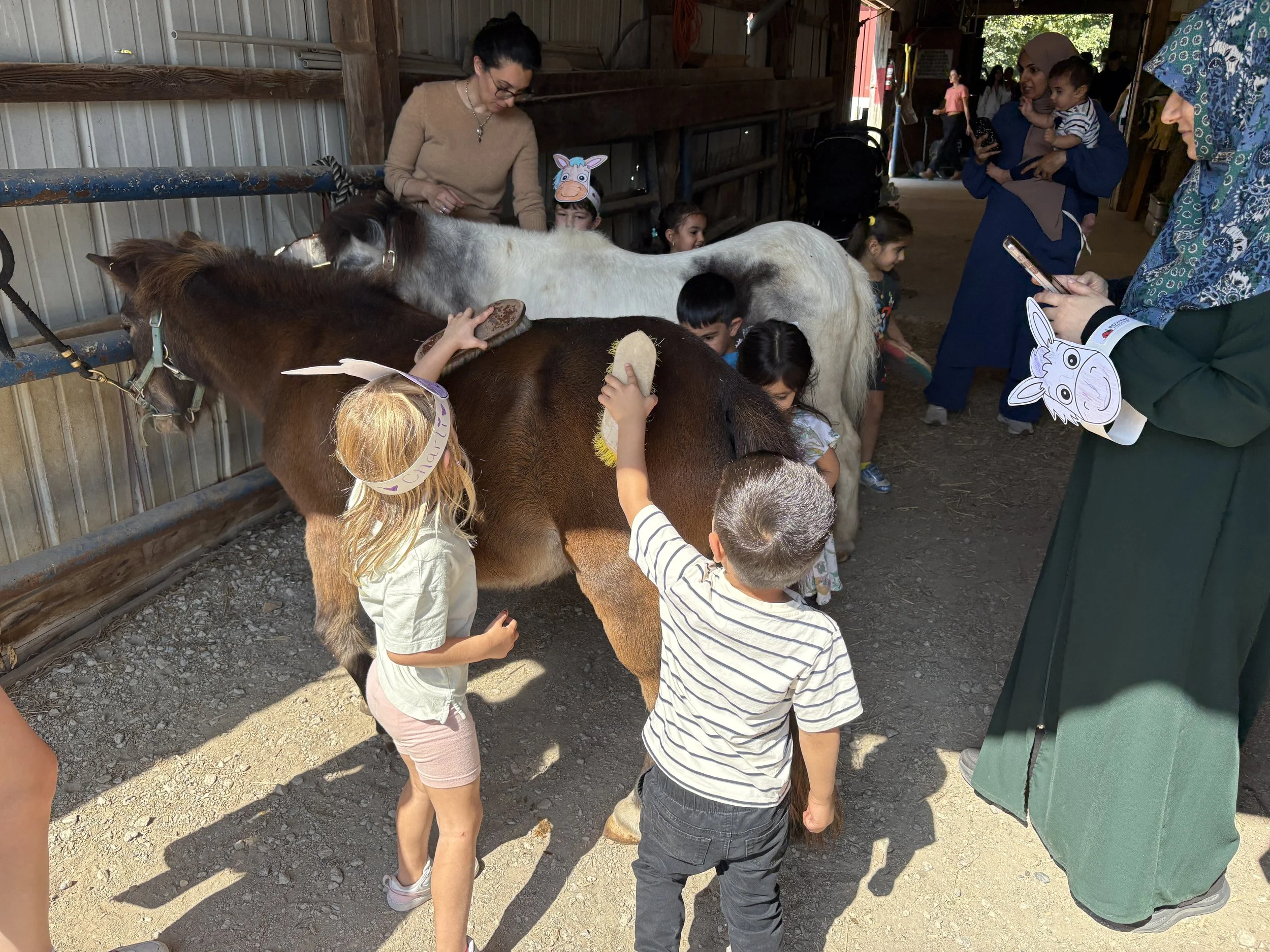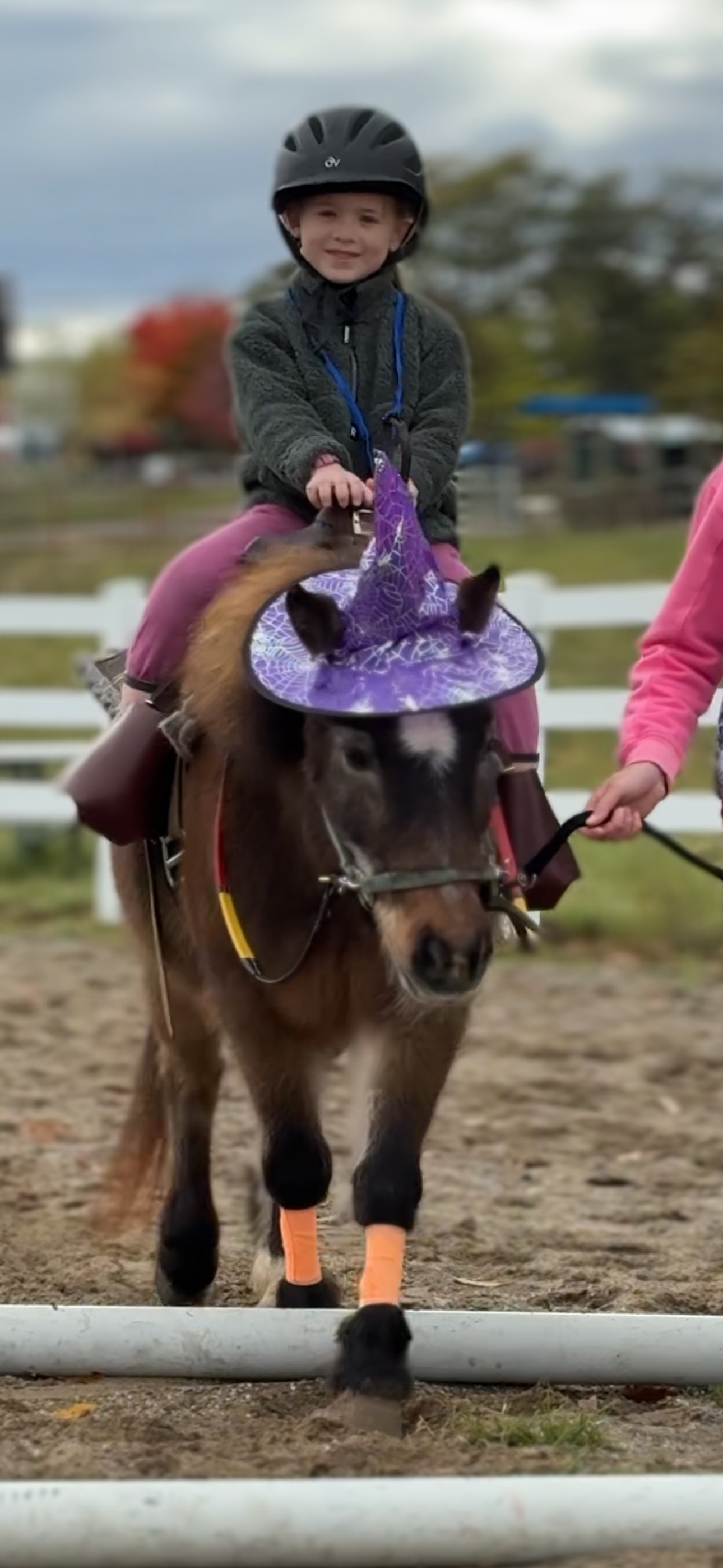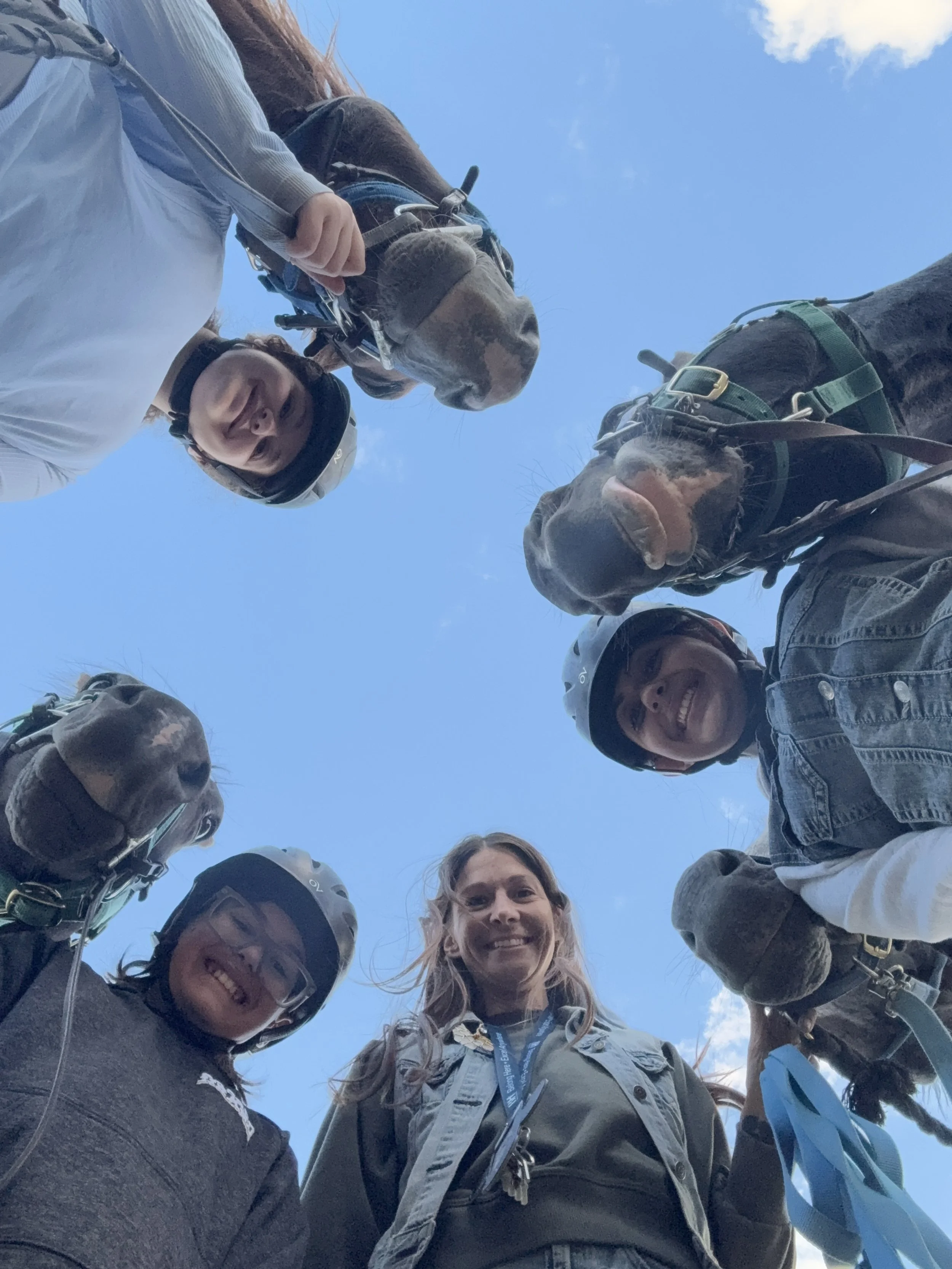
Horses and Ponies
Equine Programs
Bowers Farm Riding School
An equine program for adults and children. Students can develop skills over a 6 step program from beginner to advanced. As riders progress through the program they will master equestrian abilities with confidence along the way, learning proper equestrian techniques and equine care.
Why Bowers Riding School?
Introduce students to the world of equestrian
Have a keen understanding of horse behaviors
Develop a keen understanding of riding and handling
Learn equine care and first aid
Learn proper grooming and saddling techniques
Help foster strong relationships between the students & horses
TO HAVE FUN AND BUILD CONFIDENCE
Questions? Reach out to Lou at lkavanaugh@bloomfield.org
Little Riders Pony School (Ages 3–5)
Welcome to Little Riders Pony School, a magical introduction to the world of ponies designed especially for young children ages 3 to 5! This gentle, play-based program offers a perfect blend of learning, creativity, and pony time in a safe and nurturing environment, a chance to connect with our kind and patient ponies—while sharing the experience side-by-side with a parent, grandparent, or caregiver.
✨ What’s Included Each Week:
📚 Story Time – We start with a pony-themed picture book to spark imagination and introduce that day’s theme. Grown-ups are invited to snuggle up and read along!
🎨 Craft Time – Together, you’ll create a simple, themed craft to take home—like pony masks, apple stamp art, or paper horseshoes.
🐴 Pony Care & Safety – Children learn how to safely approach, groom, and care for ponies, with support from their adult and our gentle instructors.
🐎 Lead-Line Pony Rides – Each child will enjoy a supported pony ride, with adults walking alongside as needed. These short, confidence-building rides help young children develop balance and trust.
This is a class designed to gently introduce young children to the joy of ponies through play, routine, and kindness. No prior horse experience needed!
Themes:
September 19 - Apple Picking Ponies! Learn how ponies help on the farm and enjoy apple-themed crafts and stories.
September 26 - Hayride Helpers! Pretend play and stories about ponies and wagons. Followed by a hay wagon ride after our pony ride.
October 10 - Ponies in the Pumpkin Patch! Decorate mini pumpkins, read a pumpkin story, and go on a “patch ride.”
October 17 - Trick or Treat Trail Ride! A pretend ride through a “trail” collecting treats from hay bales or cones.
October 24 - Pony Costume Parade! Dress up ponies in playful (and safe) costumes; kids can wear costumes too!
FAQs
Riding School
-
Wear something you don't mind getting dirty! Long pants such as jeans, leggings, or breeches are highly recommended. Boots with a heel are ideal, but close-toed shoes are required. You do not need to purchase clothing for this course, but if you would like to continue through the riding school program in the future, Arizona Saddlery on Woodward is a local tack shop that you can visit. Amazon is also a good resource.
If the student has long hair we recommend putting it in a low ponytail or braid is ideal so it is tied back for a helmet to fit on their head.
-
Close-toed shoes are required
Clothing that is OK to get dirty
Recommendations:
Long pants such as jeans, leggings, yoga pants, or breaches are preferred
Boots with a small heel-at least 1/2 inch heel are preferred
A water bottle. We also have water fountains to refill water bottles
Sunscreen
A hat for when helmets are not being worn
-
If you do have your own horseback riding helmet feel free to bring them! Make sure it is ASTM F1163-15/SEI certified and manufactured within the last 5 years. If you do not have a helmet, one will be provided for you!
-
Please do not bring treats for the horses as they all have unique diets and restrictions.
-
On the first day of camp we assign students to each horse. We do our best to match campers' personalities and abilities to their horses. However, no two horses or people are the same so we may need to change which horse the student rides. This is to ensure both the student and our horses are paired with someone they get along with!
-
Yes. We require that all students start at this level to learn about the horses and rules of the barn. You still can enjoy your horse time.
Click HERE to see all the equine updates and photos:
Meet your equine instructor, Louise:
Ms. Lou, as commonly called by her students, is also the Camp Coordinator at Bowers Farm and Johnson Nature Center. She lives on a horse farm with her family. Lou has an educational background in Child Development: Early Childhood which allows her to be comfortable in classroom management, child behaviors, parent relationships. Her other passion comes with a life time of equestrian experience both as a hobby and on a professional level. She has been showing horse in the UK and US since a child. Lou has run horse camps, riding lessons and running horse facilities for many years. She also coached Milford High School Equestrian Team for 14 years leading them to many state championship titles.
“My mission is to improve the quality of life both physically and emotionally of both adults and children of all ability levels through equine-assisted activities.”
Questions? Reach out to Lou at lkavanaugh@bloomfield.org












